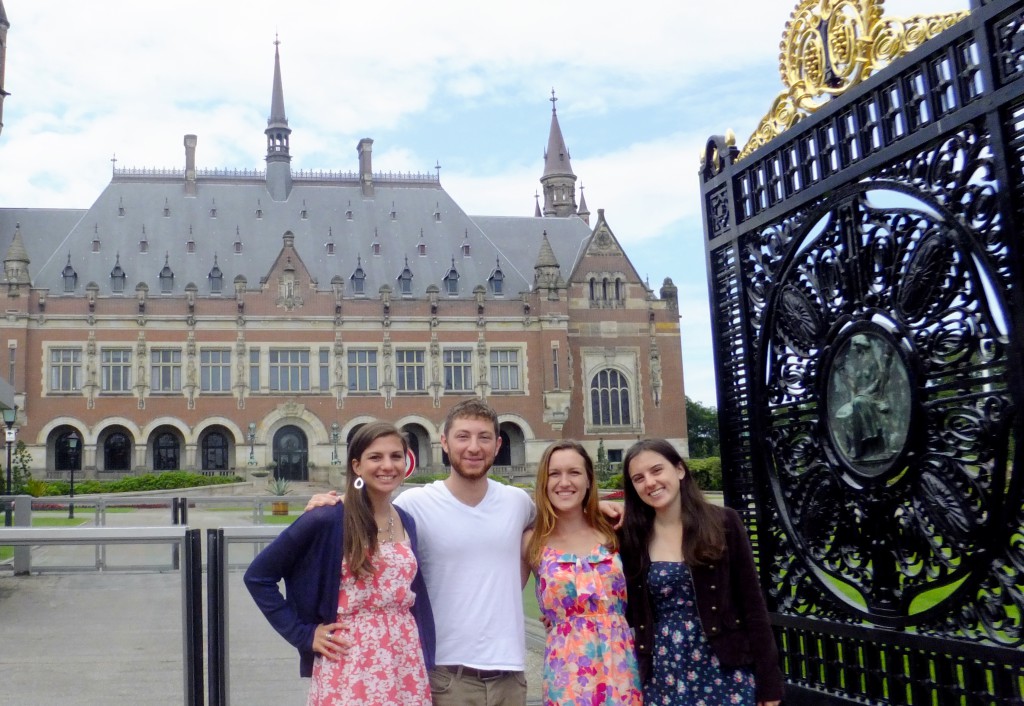
The National Science Foundation funds a unique research grant known as the Partnership for International Research and Education (PIRE), which supports high quality research and education projects conducted through international collaboration. The program allows U.S. researchers and educators to learn how to operate effectively in teams with partners from different national environments and cultural backgrounds. To apply, the Principal Investigator (PI) must be an employee representing a U.S. Ph.D.-granting institution. Daniel Magerman, currently a senior at Penn State’s Schreyer Honors College, was able to participate in PIRE program by working closely with a professor who served as the PI for the application. We interviewed Daniel to learn more about this funding opportunity for international research.
1. What inspired you to apply for the NSF PIRE Fellowship?
The NSF PIRE funded project I participated in focuses on “Understanding the Bilingual Mind & Brain.” It is an unparalleled opportunity for undergraduate students to conduct international research. As I was finishing my first year at Penn State and getting started with my dual majors in Spanish and Linguistics, I began asking around about how I might be able to do fieldwork. Penn State has many well-established linguistics labs, but since I graduated high school and took a year off to travel the world with a program called Kivunim, I developed an interest in languages and how they are spoken in their natural environments. The PIRE fellowship offered the funding and support from school faculty to help me realize my goals.
2. What were some of the benefits of the fellowship and what did you accomplish?
By the beginning of my sophomore year, I was meeting weekly with “the Indiana Jones of linguistics,” Dr. John Lipksi to discuss plans for my first fieldwork experience in a small, bilingual, Colombian community called San Basilio de Palenque. That work would be funded by another Penn State grant called the Summer Discovery Grant. Those meetings with Dr. Lipksi eventually materialized into an application to the PIRE program. Creating the application – a formal research proposal – was rewarding in and of itself as an exercise in background research and writing. Through funding from the PIRE program, I was able to bring the data I collected in Colombia to Radboud University in Nijmegen, the Netherlands. For eight weeks, I analyzed the data from Palenque, while learning from fieldwork experts and other linguistics researchers. Upon returning to Penn State that Fall, I presented my findings to the interdepartmental research group, the Center for Language Science.
PIRE provided me with a means to pursue and conduct international research, travel, learn from experts in their field (and THE field!), and share what I discovered. The experience has influenced my perspective on research, language, communities, and my future directions in life.

3. What tips would you give others applying to the PIRE Fellowship?
The PIRE fellowship is competitive and the application process is a challenge. The fellowship required two semesters of preparation in a lab before departure to the research destination. It was during that first semester that I wrote my proposal. A good research proposal (in this case, a good PIRE application) requires many revisions and conversations with advisors. Also, the PIRE program only accepts one submission per U.S. Ph.D. granting institution each year, so be sure to check internal university deadlines.
Even if your university does not offer a PIRE-type grant or any NSF-funded research, there are likely opportunities to win funding for fieldwork. In any application process, particularly for research, it’s integral to understand the subject you’re working on and the literature that’s already out there about it. Ask around, talk with a professor, write a proposal, make revisions, and take advantage of funding when it arises.
Daniel Magerman is from Philadelphia, PA, and will be graduating this spring from the Schreyer Honors College at Penn State where he majored in Linguistics and Spanish. His research efforts and his time as a peer writing tutor inspired his plans to move to South America after graduation to teach English before returning to the United States to pursue a Ph.D.
© Victoria Johnson 2016, all rights reserved.